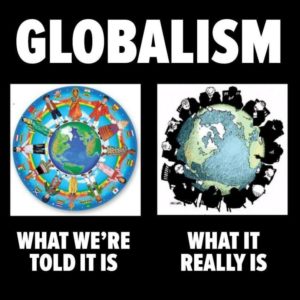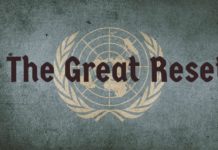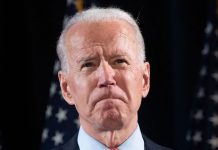The word ‘Nationalism’ has gotten a bad rap as of late, and though I consider myself a nationalist (and a very proud one at that), I can see how some people are hesitant about that word. Rather than yelling back and forth across the political spectrum, this post will attempt to build some common definitions, and in the process, will attempt to build common ground. Please read with an open mind.
Let us start with definitions. For the purpose of this article, I am going to use the American Heritage Dictionary, Second College Edition. To ensure that I’m not using politicized words, I’m using a printed copy of the dictionary (not the online version) from my library, published in 1985 – long before these words became politicized.
- Nationalism: noun 1. Devotion to the interests or culture of a particular nation. 2. The belief that nations would benefit from acting independently rather than collectively, emphasizing national rather than international goals. 3. Aspirations for national independence in a country under foreign domination.
- Globalism: noun 1. Globalization. 2. A policy promoting globalization.
- Globalization: noun 1. The act, process, or policy of making something worldwide in scope or application.
- Pluralism: noun. 1. The condition of being plural. 2. A condition of society in which numerous distinct ethnic, religious, or cultural groups coexist within one nation. 3. The holding by one person of more than one position at the same time.
 All of the definitions of ‘Nationalism’ are relevant for our discussion, and there is only one definition for ‘Globalization’. For ‘Pluralism,’ I will be assuming the second definition: A condition of society in which numerous distinct ethnic, religious, or cultural groups coexist within one nation.
All of the definitions of ‘Nationalism’ are relevant for our discussion, and there is only one definition for ‘Globalization’. For ‘Pluralism,’ I will be assuming the second definition: A condition of society in which numerous distinct ethnic, religious, or cultural groups coexist within one nation.
Those who dislike the word ‘Nationalism’ can generally fall into one of two camps. One camp are the globalists, and by ‘globalist,’ I don’t mean someone who believes that nation-states should work together when they have shared, or compatible, interests. We are all for globalization where interests are shared. By ‘Globalist’, I mean someone who does not believe nation-states should exist, or, in other words, someone who thinks that the world should be all one nation. These people exist.
There are other people who dislike the word, ‘Nationalism’ as they think that it implies the opposite of ‘Pluralism’.
Let me be clear on a critical point. The Unites States is a pluralist nation, so when an American says they are a ‘Nationalist,’ unless they add something to that, ‘Pluralism’ should be implied. There are, however, those who define the word ‘Nation’ in such a way as to make it non-pluralist.

Today, when someone says they are a nationalist, many on the left accuse them of being Nazis, based on the notion that the Nazis were nationalists, but were the Nazis nationalists? They certainly considered themselves nationalists, and even included ‘National’ in their name. NAZI is an abbreviated form, in German, for “National Socialist Worker’s Party”. Many on the left like to argue that the Nazis were not socialists, in spite of the use of the name, and there is some truth to that. The Nazis were actually fascists, and while socialism and fascism are related to one another, they are not the same thing (see the article Fascism was Socialism 2.0 for more).
Just as the Nazis considered themselves ‘socialists’ when they were not true socialists, so too the Nazis considered themselves ‘nationalists’ when they were not true nationalists. The Nazis, rather, had a funny view of what constituted a ‘nation.’
The German word for ‘Country’ is ‘Land.’ German for ‘Germany’ is ‘Deutshland,’ which can also be translated to “Land of the German people.” There were two words for ‘German People.’ One was ‘Deutsh,’ and the other was ‘Volk’.
The ‘Deutsh’ were the people living in Germany (or ‘Greater Germany’ before Germany became a truly united country). The ‘Volk’ were the Germanic people, and ‘volk’ is very much an ethnic word. When the Nazis said they were ‘Nationalists,’ they meant it in the sense of the ‘Volk’ being a ‘nation,’ independently of the borders of Germany. The whole point of German expansion, which the Nazis called ‘Liebenstraum,’ or ‘living space’, was to create a larger homeland for the Germanic race, and I would not call this ‘Nationalism’ so much as ‘Ethnicism’.
‘Ethnicism’ is not in my 1985 American Heritage Dictionary, but Google defines it as “An emphasis upon ethnic identity. Prejudice based on ethnic origin. (obsolete) heathenism; pagan superstition.” Google also points to the phrase ‘Ethnic Nationalism’, which is a much better way of looking at the word ‘Nationalism’ as the Nazis used it. Ethnic nationalism is very different than, and in many ways the opposite of, ‘Nationalism’ built on pluralism.
There are ethnic nationalists in the United States. Richard Spencer is one. Louis Farrakhan is another. Ethnic nationalist believe that culture and ethnicity are inseparable, and that, as a consequence, people of different ethnicities cannot live together in peace. Some ethnic nationalists (such as the Nazis) think that their ethnicity is better than others, whereas others (like Richard Spencer) just think different ethnicities are incompatible within the same nation. Both forms of ethnic nationalism are abhorrent.
The vast majority of nationalists in the United States are also pluralists. We enjoy the cultural diversity of our country, and want the richness and vibrancy that different cultures, and different ethnicities, bring to our unique nation. But we also believe that the United States should remain an independent nation, with interests of its own that do not always correspond to a global collective. We want the United States to have defined borders, and the sovereignty to pass and enforce laws within those borders, and we want the people of other nations to have the right to do the same thing within their nations.
America has a unique culture that permeates all of the subcultures within it. Ours is a culture based on the notion that the state exists, not to control people, but to liberate them from control, such that they can live their lives however they wish. Libertarians talk about a ‘non-aggression principle’, which is the idea that people do not have the right to initiate aggression against other people, and America was largely built on the premise that the primary purpose of the state is to enforce the non-aggression principle.
Nationalism is, in the end, neither ‘good,’ nor ‘bad,’ by itself. What you mix it with is a critical component. If it is mixed with pluralism, as is the case the vast majority of the time in the United States, nationalism becomes a force for strength through diversity, in which each of us have the right to live our lives however we wish (as long as we allow others to do the same), while all being treated equally under the law, without regard to our ethnicity, religion, or cultural sub-group. We all grow by sharing our cultural richness.
Ethnic nationalism, on the other hand, is abhorrent. It should be denounced and discarded wherever it is found. This does not mean that we deny the rights of ethnic nationalists to speak, and to assemble peacefully. The freedom of speech, and of peaceful assembly, are a part of the bedrock of any free society, and we have to defend the right to do these things, even when people use these rights to promote abhorrent things. Luckily, the number of ethnic nationalists is relatively small: as terrible as what happened in Charlottesville, VA, ethnic nationalists spent several years planning that event, and still only mustered about 100 people – drawing not only from all over the United States, but from Canada as well. While we should find it horrendous that 100 people would be willing to meet and march for ethnic nationalism, we should also remember that in a country of almost 330 million, 100 people is not very many. It is right and proper to protest such marches, but protests of marches should also be peaceful.
Does anyone really believe that Richard Spencer has a message that resonates with large numbers of American people?!? If anyone actually believes that, they have a very distorted view of the American people.
And how about globalists? Marx’ idea of communism was global in scope, as is anarcho-capitalism. Neither system has ever worked outside the scope of a national government. Ironically, the only communes that have worked have been voluntary ones, that existed within a capitalist state. Anarchy has never worked.
Globalism is the opposite of self-rule. Globalism is the notion that a small group of intellectually gifted, moral characters, should rule over all the Earth. But who are these ‘intellectually gifted, moral characters’? Hitler had an answer for that – he called them ‘Aryan’. Stalin and Mao both had answers as well, as did Tojo, Castro, and every king or dictator who has ever walked the Earth.
There is no ‘moral and intellectual elite,’ and the quest for power of those who think they are such a thing is just as evil as is the quest for power by ethnic nationalists – most of whom consider themselves such an elite! The desire to control others, upon which globalism is based, is abhorrent. We should reject this at every turn.
I reject globalism, and I reject ethnic nationalism. That leaves only pluralist nationalism, and given that the United States is a pluralist nation, we should all be happy to call ourselves proud American nationalists, even as we differ on other things.
Hopefully, this article is able to help forge some common ground in both major political parties. If you agree with it’s message, please share, and please let people know that though ours is a decidedly liberty-minded forum, this particular article is also about unity, between both political parties. We spend so much time tearing each other apart – and sometimes on legitimate political grounds – that it is necessary sometimes to remember that which makes us all Americans, and what better time of year than Thanksgiving, and the start of the Holiday season.
Happy Holidays America. I love you all.
























